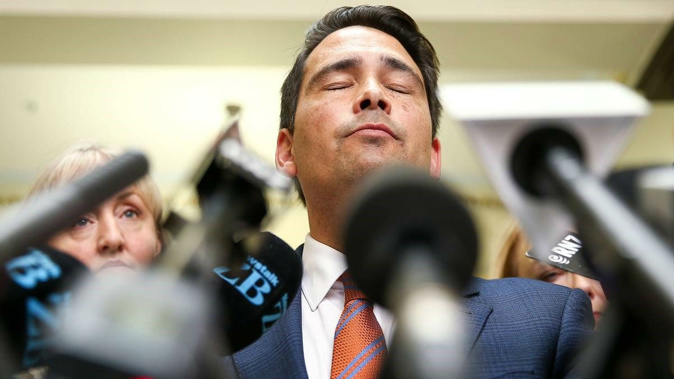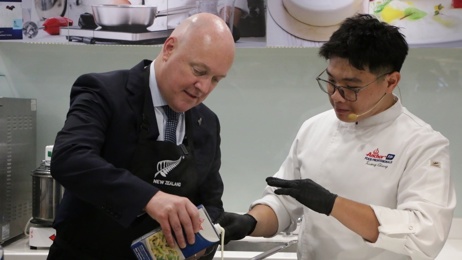
COMMENT:
Jami-Lee Ross's allegations against Simon Bridges were the most serious levelled against a political leader by a colleague in living memory.
Bridges stood accused of crimes carrying two years' jail by someone who had spent four years in the Whips' Office, where an MP learns a party's dirtiest secrets.
In his extraordinary appearance on Tuesday, Ross may have sounded mad but everything he alleged had some plausibility. Political parties do push the boundaries of the election finance laws, embarrassing all of them over the years. Moreover, Bridges is known for speaking incredibly frankly in private.
Sure enough, Bridges and National MP Maureen Pugh were mortified when Ross's first secret tape had the leader calling her "f****** useless" in private conversation. Ross's remaining tapes will no doubt reveal even more elaborate epitaphs about other MPs.
National MPs might be offended except that most have also used similar terms about their colleagues in private. They are united around nothing being done to reward the secret taper. Ross's attack fell flat.
Bridges was vulnerable after some unilateral decisions as leader appeared to have misfired.
Most obvious was demanding Speaker Trevor Mallard launch an inquiry into the travel expenses leak and hiring PWC when Mallard cancelled the first planned investigation after an anonymous text from a person purporting to be at risk to themselves.
Eyebrows were also raised that Bridges seemed outmanoeuvred by Ross when releasing the PWC report on Monday and then during the expulsion process on Tuesday.
But after Ross issued his first secret recording on Wednesday, Bridges came into his own, proving Key right in 2008 to identify the MP for Tauranga as a likely successor. The PWC inquiry has also done New Zealand a favour by getting a bad egg out of Parliament.
Bridges did adequately in his first months as Opposition Leader. National's polling has held up, with the party within a handful of votes to limit Jacinda Ardern to a single term.
His main fault has been spending too much time defending the Key-English regime rather than signalling what a Bridges Government might look like or simply critiquing Ardern's crew.
Further, he has fallen into the trap of barking at too many passing cars. Like Jim Bolger in the 1980s and Helen Clark in the 1990s, Bridges has had to face the fact that voters don't personally like him as much as most human beings expect other people will.
In his Wednesday press conference, Bridges demonstrated conclusively he can deal with a major, career-threatening crisis.
As with Clark in 1996 when staring down Michael Cullen, Annette King and Phil Goff's attempted coup, Bridges looked prime ministerial. He spoke confidently and passionately, without umm-ing and ah-ing or reverting to bureaucratic jargon or process.
He answered every question while sticking to his key messages rather than being led down paths of the media's choosing. These are the leadership skills which, if applied to attacking Ardern's Government and the cost of living crisis, will limit her ramshackle regime to one term.
Less obviously, Ross's secret recording revealed important leadership qualities. The private conversation was cynical and vulgar, but Bridges was found to be focused on attacking the Government, fundraising, getting value for money from the party apparatus, connecting with Auckland's immigrant community and party rejuvenation. These are exactly what his priorities should be.
And despite his interlocutor trying to push him over a legal line, Bridges remained on the right side of it.
He is no choirboy but he knows exactly where the boundaries are, even in private conversation with a supposedly trusted lieutenant.
Bridges cannot win in 2020 by being nicer than Ardern. But he can win by being tougher and more serious than her.
His strength in calling the inquiry and seeing it through against advice means there will be no more leaks from his caucus, even if times get tough.
There will now be a byelection in Botany. It will start out as a referendum on Bridges' leadership.
But if Bridges shows the singlemindedness he did this week, it will become a byelection about the cost of living in a safe National seat where petrol prices matter more than almost anywhere else in New Zealand.
- Matthew Hooton is managing director of PR and corporate affairs firm Exceltium.
Take your Radio, Podcasts and Music with you









